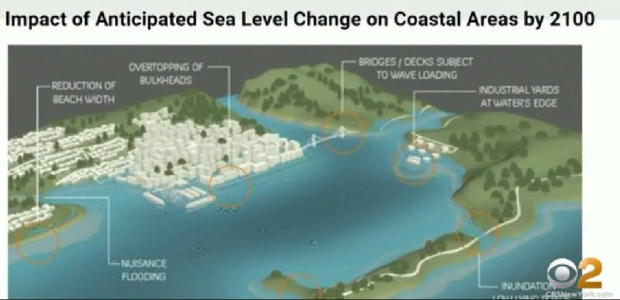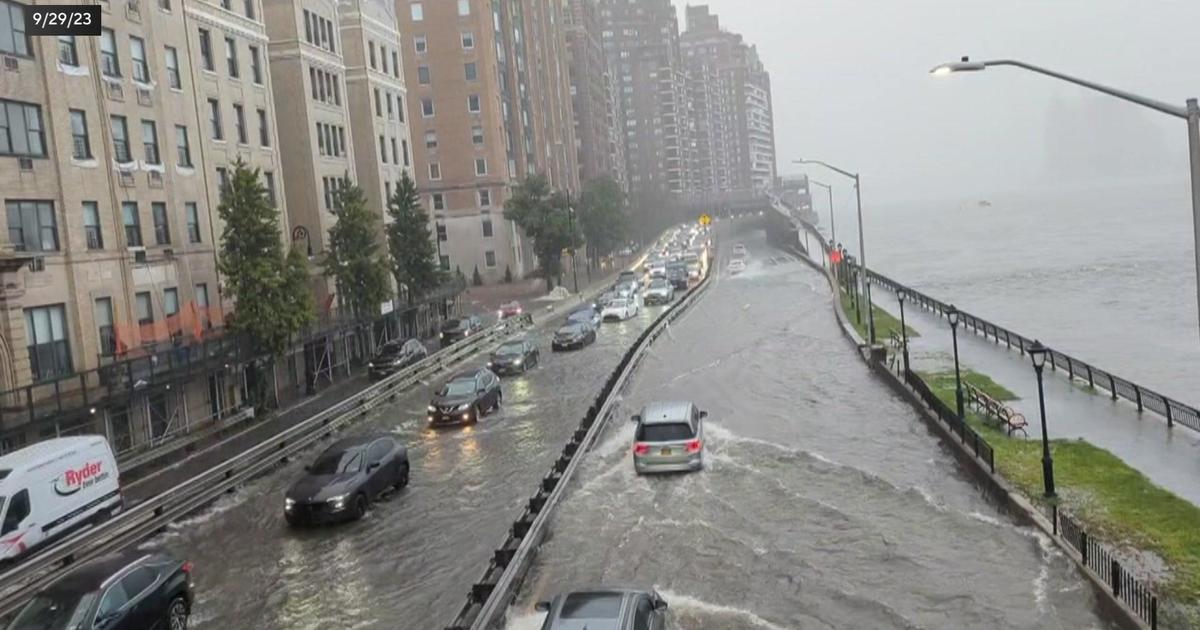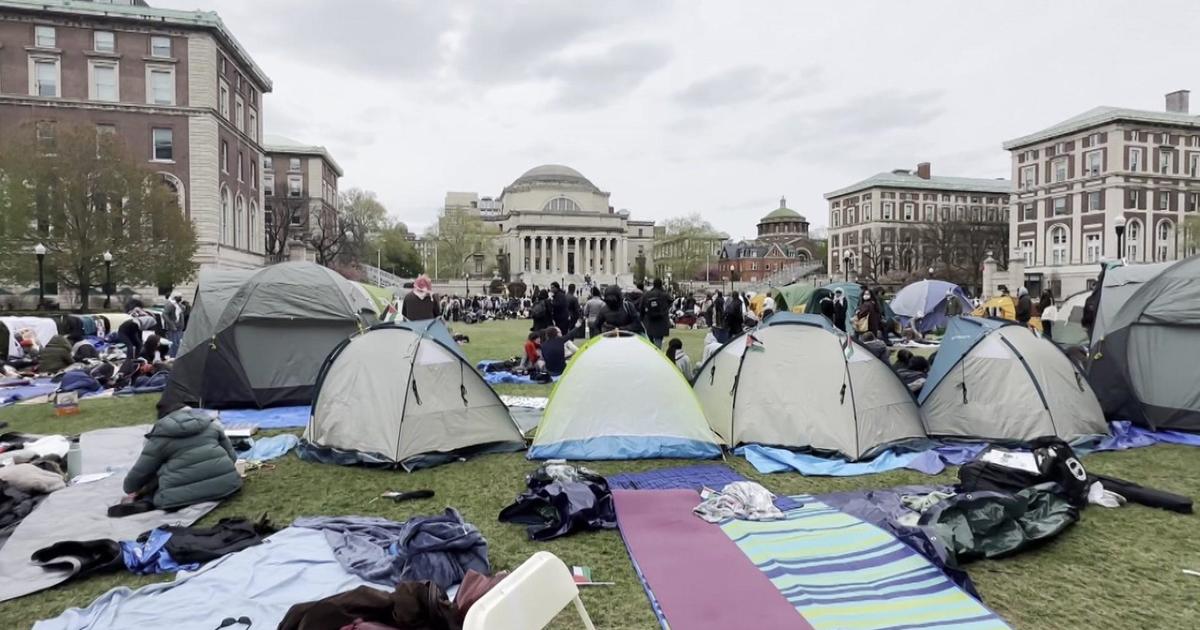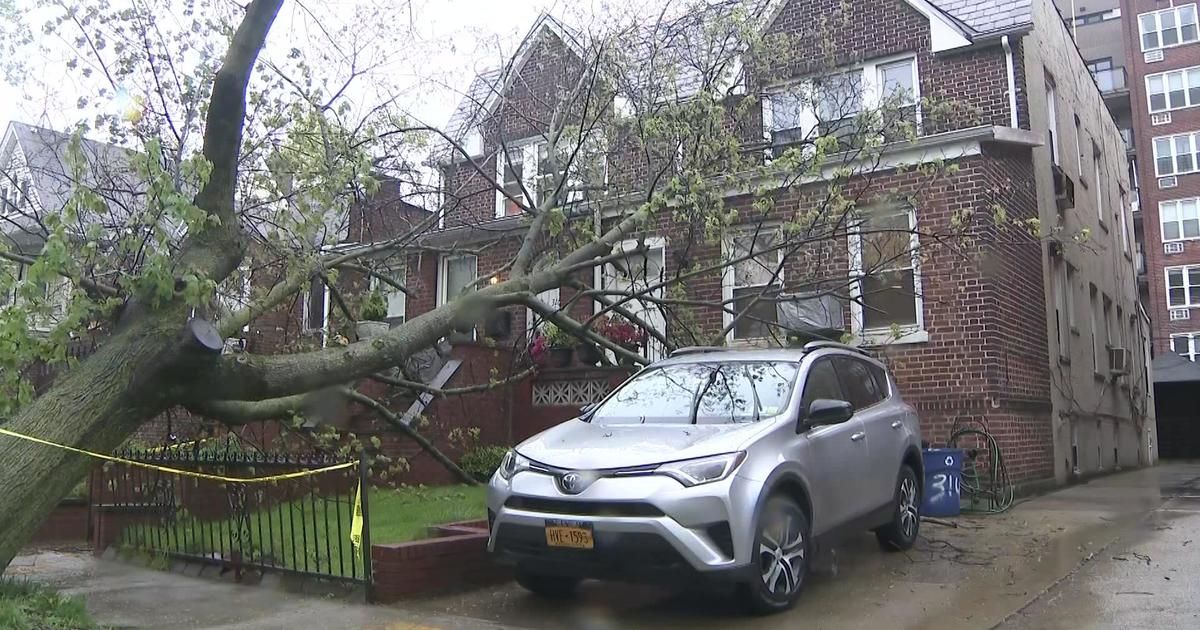Working Group Finds New York And New Jersey Are Not Very Well Prepared For Another Sandy-Like Storm
NEW YORK (CBSNewYork) -- Friday marks nine years since Superstorm Sandy barreled into the Tri-State Area.
It begs the question: Just how prepared are we for another Sandy-like storm?
According to some experts, not very, CBS2's Alice Gainer reported Thursday.
Sandy was all about storm surge. The more recent storm, Ida, was all about rainfall. There is also sea level rise to consider.
"We're playing Russian Roulette with climate change and climate change is going to win,' said Bill Golden of the New York/New Jersey Storm Surge Working Group.
Suzanne DiGeronimo of DiGeronimo Architects says in the years since Sandy, "There have been some local projects that have been done and funded but nothing of major consequence."
On Thursday in Canarsie, state officials kicked off construction on a $14 million Fresh Creek coastal protection project to reduce flooding. The group says this isn't just a New York City problem; it's a regional issue.
Gainer boarded a boat on the Hudson River with engineers, architects, planners, local leaders and scientists to mark the anniversary of Superstorm Sandy. For years, they've been suggesting a layered regional defense for storm surge -- off-shore moveable sea gates, similar to those in London, New Orleans, Russia and New England.
"From Sandy Hook to Breezy Point and across Throgs Neck, by putting in that five or six miles of protection, you would protect over 1,000 miles of coastline," Golden said.
It's something the Army Corps of Engineers is studying and it has its critics, like Comptroller Scott Stringer, who wrote a letter in 2019 saying he'd rather focus on "localized floodwalls, dune and wetland restoration, living shorelines, reefs and levees."
For flooding, Golden said the group also suggests, "You could build low-lying defenses to that nuisance flooding that it causes with maybe 1-, 2-, 3-foot walls."
The design debate has been ongoing, but the group argues time is running out.
"Creating a layered defense is gonna cost billions of dollars, but doing nothing is gonna cost more," Golden said.
Whatever solution is agreed upon, New York and New Jersey will foot some of the money. The rest would come from the federal government.




